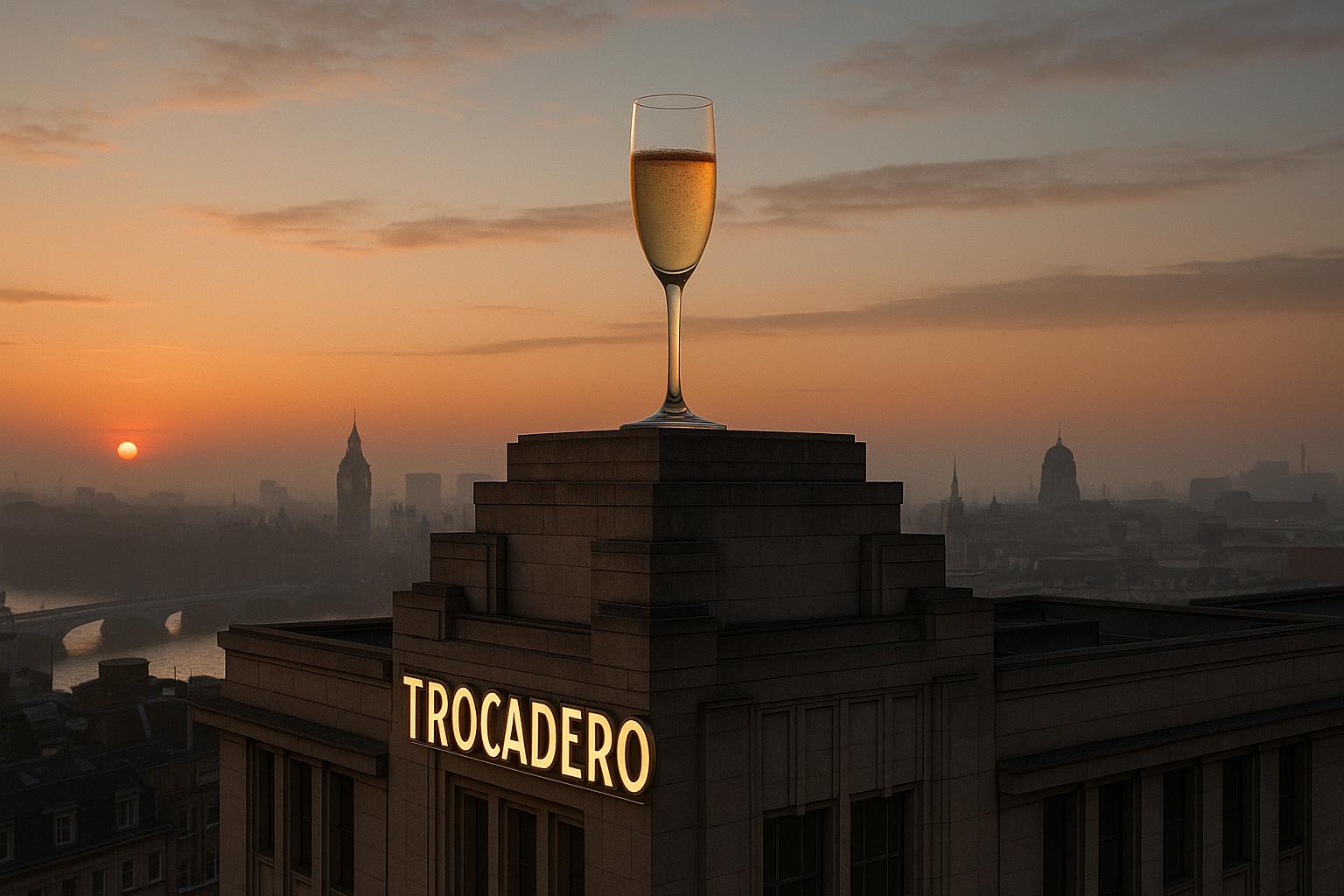The iconic Trocadero building near Piccadilly Circus in London is set for a significant transformation as Genting Casinos UK prepares to invest £40 million in converting the historic site into a full-scale, 24-hour casino and leisure venue. Approved unanimously by Westminster City Council’s planning committee, the redevelopment will breathe new life into the Grade II-listed building, which has long been a symbol of London’s evolving entertainment scene. Scheduled to open in October 2026, the venue is expected to accommodate up to 1,250 customers and create approximately 350 jobs, a boost for the city’s hospitality sector amid rising operational costs and ongoing recovery from the pandemic.
This latest reinvention follows the Trocadero’s rich and varied history, from its origins as a 19th-century music hall to a grand restaurant, a sprawling amusement arcade beloved in the 1990s, and eventually a nightclub. The building has always mirrored London’s cultural and social trends, shifting with the city's changing tastes. Genting’s project is envisioned as more than a cosmetic upgrade; it will revitalise around 37,000 square feet of currently underused space, including the former Bubba Gump restaurant and Opium nightclub areas, into a vibrant hub comprising a casino, restaurants, and bars. The plan aims to attract a diverse clientele by delivering an in-person entertainment experience that contrasts with the convenience of online gambling, focusing on the social energy and atmosphere unique to a physical venue.
While the move signals a robust vote of confidence in brick-and-mortar hospitality, it also raises concerns among local groups like the Soho Society. They warn that an all-hours casino might disrupt the delicate balance of Soho’s distinctive nightlife, which thrives on its blend of small venues, arts, local eateries, and late-night vibrancy. Critics fear the casino could shift the area’s character towards an overly commercialised tourist attraction, overshadowing the community feel that Soho is known for. However, supporters and councillors argue that casinos tend to attract a clientele that is more sober and less prone to causing disorder, suggesting that a well-managed, high-end venue like Genting’s could seamlessly integrate into the existing cultural fabric.
The project unfolds against a backdrop of rapid growth in digital gambling platforms, where ease of access and a vast selection of games have drawn many users online. Industry insights note that while online gambling offers practical advantages, it lacks the collective atmosphere and social interaction found in physical venues. Genting’s gamble is that there remains a significant market for immersive, live experiences—a place where gaming is part of a broader night out, complemented by dining and socialising. The casino will thus strive to balance entertainment with responsible gambling measures, aiming to operate safely and maintain good relations with its neighbours, particularly given its 24-hour licence.
Overall, the Trocadero’s reinvention into a casino and leisure complex not only reflects the ongoing evolution of London’s West End but also underscores the continued relevance of physical entertainment spaces in a digital age. The scale of investment affirms a belief in the enduring appeal of the city’s nightlife and hospitality sectors. As the project progresses, it will test how well a historic venue can adapt to modern demands while preserving the unique character of one of London’s most storied locations.
📌 Reference Map:
- Paragraph 1 – [1] (UKNIP), [2] (BBC), [3] (ITV)
- Paragraph 2 – [1] (UKNIP), [4] (Yogonet), [5] (G3 Newswire), [6] (13 Coventry Street)
- Paragraph 3 – [1] (UKNIP), [3] (ITV), [7] (London Evening Standard)
- Paragraph 4 – [1] (UKNIP), [3] (ITV), [7] (London Evening Standard)
- Paragraph 5 – [1] (UKNIP), [7] (London Evening Standard)
- Paragraph 6 – [1] (UKNIP), [2] (BBC), [3] (ITV)
Source: Noah Wire Services
